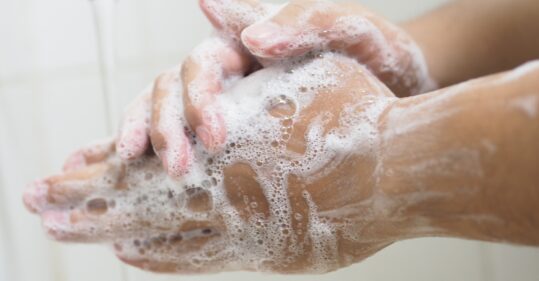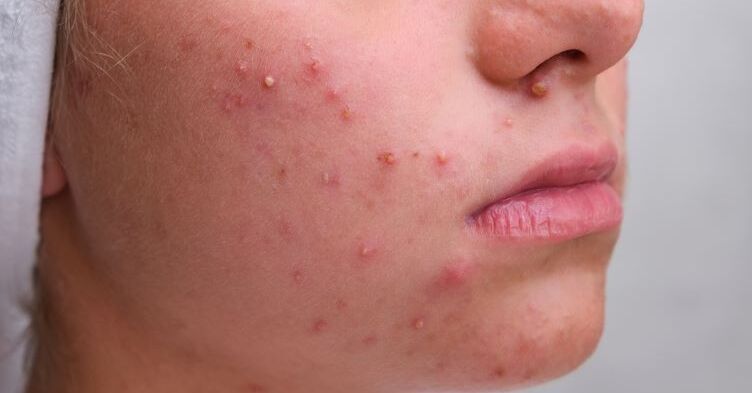Healthcare workers suffering from skin conditions such as dermatitis, brought on by an increased use of PPE and hand washing, have been forced to take time off work, research has found.
The study, conducted by the British Society of Cutaneous Allergy, found six in ten (59%) of 200 hospital-based healthcare staff attending occupation skin disease clinics had suffered with irritant contact dermatitis.
In addition, one in five (18%) required time off work as a result of occupational skin problems. Longer duration of PPE worn on a shift and more frequent hand washing tended to increase the amount of time off, although alcohol hand gel did not make a difference.
Related Article: CPD: Case by case – acute and emergency dermatology presentations
Dr Isha Narang, who led the study and is a registrar at University Hospitals of Derby and Burton NHS Foundation, warned that dermatitis ‘can be bad enough to require time off work’.
She continued: ‘As PPE and hand washing are essential methods of reducing the spread of COVID-19, it is important to provide healthcare workers with advice and support in managing their skin.’
Irritant contact dermatitis is a type of eczema that can be caused by frequent hand washing, alcohol hand gel use and prolonged PPE use, which can all dry the skin.
The healthcare staff surveyed washed their hands with soap 22.8 times per day and used alcohol hand gel 22.7 times per day, on average.
In addition, 15% of healthcare workers reported suffering from acne, caused by prolonged mask wear.
Related Article: Mythbuster: ‘This patient’s ulcer swab is positive so they need antibiotics’
The study authors suggested that healthcare worker should regularly moisturise when not at work and take regular breaks in which PPE is removed, where possible.
Dr Harrier O’Neill, another lead researcher and registrar at University Hospitals of Derby and Burton NHS Foundation, added that people pat – and not rub – themselves dry after hand washing to prevent dermatitis.
She continued: ‘Moisturisers (emollients) are an essential part of treating dermatitis and should be applied generously after handwashing and whenever the skin feels dry.
‘In severe cases, or if an infection is suspected, further treatment from a GP or an occupational health doctor may be required.’
Related Article: Top tips for supporting patients with acne
Last month, a study found that the long-term widespread use of potent topical corticosteroids – used to treat psoriasis and eczema – may increase vulnerability to Covid-19.
In addition, ‘minimally invasive’ tape strips that can differentiate between eczema and psoriasis showed promise in a study.






